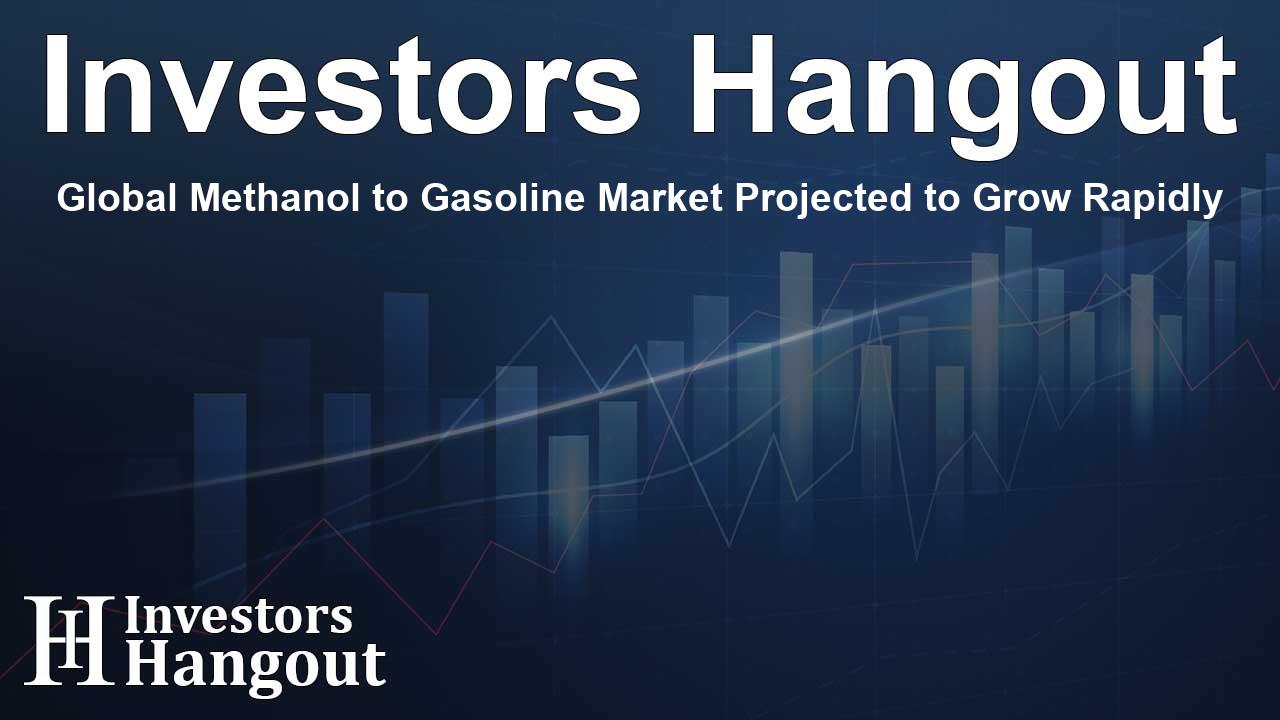Global Methanol to Gasoline Market Projected to Grow Rapidly

Methanol to Gasoline Market Trends and Predictions
The global methanol to gasoline market is gaining significant traction, with projections estimating it will balloon from a valuation of USD 2.2 billion in 2022 to USD 4.2 billion by 2031. This impressive growth trajectory is attributed to a robust compound annual growth rate (CAGR) of 7.3% from 2023 to 2031. As the demand for alternative fuel sources rises, the importance of methanol to gasoline (MTG) technology becomes increasingly evident in addressing the energy needs of the future.
Understanding Methanol to Gasoline Technology
Methanol to Gasoline technology is a breakthrough chemical process that efficiently converts methanol into gasoline. This conversion process involves multiple catalytic reactions where methanol first transforms into light olefins, which are then further developed into gasoline-like hydrocarbons. The finished product closely mirrors traditional gasoline both in composition and performance, making it a viable alternative fuel source.
Advantages of MTG Technology
One of the leading advantages of MTG technology is its ability to utilize cheap and versatile feedstocks, primarily methanol, which can be derived from various sources including natural gas, coal, and biomass. This characteristic makes MTG technology an invaluable asset in the quest for sustainable energy solutions. Furthermore, the technology promotes diversification of energy sources, reducing reliance on crude oil and bolstering energy security by enabling gasoline production from renewable resources.
Driving Forces Behind Market Growth
The expansion of the MTG market is primarily driven by the escalating global demand for sustainable energy and alternative fuels. As environmental concerns mount and governments enact more stringent regulations aimed at reducing greenhouse gas emissions, the importance of cleaner technologies like MTG comes to the forefront. With methanol typically sourced from renewable processes, MTG aligns well with these pivotal sustainability objectives and is viewed as a major contributor to reducing the industry's carbon footprint.
Moreover, strategic government investments in clean energy technologies bolster the MTG market's growth trajectory. Countries around the globe are increasingly providing financial incentives for research and development in the alternative fuels sector, which accelerates technological innovation in MTG processes and eases their commercialization.
Regional Insights: Asia-Pacific Leading the Way
The Asia-Pacific region is currently witnessing robust growth in the MTG market, largely driven by skyrocketing gasoline demand and a pressing need for alternative fuel sources to supplement existing fossil fuels. As the economies within this region continue to expand, so does the appetite for transportation fuels. Countries like China and India, with substantial methanol production facilities, are leveraging this local capacity to enhance energy independence and minimize reliance on imported oil.
Key Players Shaping the MTG Landscape
The competitive landscape of the methanol to gasoline industry features numerous prominent players including ExxonMobil, Sinopec Engineering (Group) Co., Ltd., and Methanex Corporation, among others. These organizations are actively invested in furthering the development and implementation of MTG technologies, which are pivotal for meeting the growing demand for cleaner transportation fuels.
Market Segmentation Insights
The methanol to gasoline market can be segmented based on various factors including feedstock sources, reactor types, and application areas. The primary feedstocks include natural gas, coal, and biomass, while fluidized bed and fixed bed reactors are prevalent in the production process. MTG applications range from transportation fuels to chemical blending components, underscoring the versatility of this technology.
Conclusion
In conclusion, the methanol to gasoline market is poised for remarkable growth, fueled by the technology’s ability to produce high-quality gasoline from diverse feedstocks and its alignment with global sustainability initiatives. The growing demand for sustainable fuels, combined with cost-effective production methods and favorable government policies, significantly enhances the viability and market presence of MTG technology in the global energy sector.
Frequently Asked Questions
What is the methanol to gasoline market size projected for 2031?
The methanol to gasoline market is projected to reach USD 4.2 billion by 2031.
What are the main factors driving the growth of the MTG market?
Key drivers include increasing demand for sustainable fuels, cost-effective methanol production, and supportive government policies.
Which regions are leading in the adoption of MTG technology?
The Asia-Pacific region is currently leading the MTG market, with significant demand for gasoline and abundant methanol production capabilities.
Who are the key players in the methanol to gasoline industry?
Prominent players include ExxonMobil, Sinopec Engineering, Methanex Corporation, and others.
What advantages does MTG technology offer?
MTG technology allows for the conversion of inexpensive feedstocks into high-quality gasoline, contributing to energy security and sustainability goals.
About Investors Hangout
Investors Hangout is a leading online stock forum for financial discussion and learning, offering a wide range of free tools and resources. It draws in traders of all levels, who exchange market knowledge, investigate trading tactics, and keep an eye on industry developments in real time. Featuring financial articles, stock message boards, quotes, charts, company profiles, and live news updates. Through cooperative learning and a wealth of informational resources, it helps users from novices creating their first portfolios to experts honing their techniques. Join Investors Hangout today: https://investorshangout.com/
Disclaimer: The content of this article is solely for general informational purposes only; it does not represent legal, financial, or investment advice. Investors Hangout does not offer financial advice; the author is not a licensed financial advisor. Consult a qualified advisor before making any financial or investment decisions based on this article. The author's interpretation of publicly available data shapes the opinions presented here; as a result, they should not be taken as advice to purchase, sell, or hold any securities mentioned or any other investments. The author does not guarantee the accuracy, completeness, or timeliness of any material, providing it "as is." Information and market conditions may change; past performance is not indicative of future outcomes. If any of the material offered here is inaccurate, please contact us for corrections.